HIT CHANNEL EXCLUSIVE INTERVIEW: December 2024. We had the great honor to talk with a legendary musician: Nathan East. He is most well-known as the bass player of Eric Clapton for 40 years. He has also been a founding member of Fourplay and has released three solo albums so far. As a top-class session musician he has played with Michael Jackson, Phil Collins, George Harrison, Kenny Loggins, Toto, Daft Punk, Stevie Wonder, Al Jarreau, Wayne Shorter, Herbie Hancock, Chick Corea and many others. Currently, he is finishing a duo album with his son, Noah. Read below the very interesting things he told us:
Happy Birthday for Sunday! We share the same birthday. We were born on December 8th. Me, you and Jim Morrison.
Happy Birthday! Oh, come on, that’s incredible! I had no idea. Oh, great.
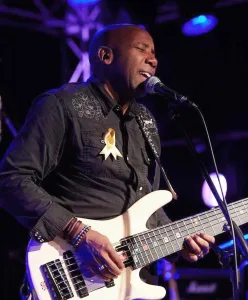 How did you come up with the idea to tour with your son, Noah?
How did you come up with the idea to tour with your son, Noah?
Well, on this very piano behind me (ed: on Zoom), which is where he’s been studying and playing since he was 4-5 years old, I just noticed earlier on, that some of the arrangements of what he was playing were beautiful pieces. We were recording my first album (ed: “Nathan East” -2014) and I showed one of the pieces to my producer, Chris Gero and he said: “Let’s put that on the album!” I think it was the song “Yesterday” (The Beatles), a beautiful arrangement and then one thing led to another and now we are just about to complete our first duo album together and it just makes sense; I’m glad he wants to come tour with daddy (laughs).
Does the father-son relationship between you and Noah make your musical collaboration easier or more complicated?
Oh, much easier! I mean, first of all, we play at 4:00 in the morning right here, in the living room, at any time, day or night, so, we always have access to each other. When you have the same blood running through your veins, it just makes things a lot easier.
Will you have any special guests on the duo album with your son?
Yes, as a matter of fact, Hubert Laws (saxophone, flute) came in and played with us on a song called “Killer Joe” that I used to listen to it by Quincy Jones (ed: on his “Walking In Space” album -1969) 50 years ago and he played on the original, so, to have him playing with us was amazing. Merry Clayton (ed: known for her duet with Mick Jagger on the Rolling Stones song “Gimme Shelter”), one of my favorite singers ever, came and sang and she did a beautiful job. Billy Valentine sang on a song called “Hard Times”, which we are blessed to have Eric Clapton play a little guitar on. So, there are a few surprise guests. We feel very fortunate that people came in and joined us on this record.
What are the projects you are currently involved with?
There are currently rotating projects: There is a new Eric Clapton album (ed: “Meanwhile”) that was just released, that we had the opportunity to work together on and we are just finishing the final mixes of the father-son duo album for Nathan & Noel East. So, that’s pretty much consuming my time nowadays.
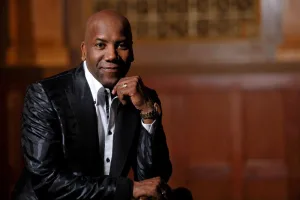 I really like “Shadow” from your “Reverence” (2017) solo album. How did it happen to get Chick Corea to play synthesizer in this song?
I really like “Shadow” from your “Reverence” (2017) solo album. How did it happen to get Chick Corea to play synthesizer in this song?
Chick was a dear-dear friend and we had been working together for over 40 years, so, I just thought: “Let’s call him and see if he’d like to play”. I sent him the song, he loved it and he was able to bless us with his performance. I will be forever grateful for that.
Is it flattering that you had all those great artists talking about you on “Nathan East -For the Record” (2014) documentary?
It’s unbelievable. Once again, my producer Chris Gero and the folks at the Yamaha Entertainment Group, they sort of did that behind my back and snuck around and asked all my friends to be in this. I had no idea and I was very flattered and it just took my breath away to see that.
I guess it was an easy decision for you to join Toto in 2010, wasn’t it?
Absolutely! First of all, they are my friends -again- for several decades and the reason the tour took place was the most important, because it was in support of Mike Porcaro (bass), a dear-dear friend and a wonderful musician. When they said: “We need to help him with his medical expenses and we are gonna out on a tour and the proceeds of that tour are gonna go to that”, I said: “Where do I sign?”
The “Little Wing” (Jimi Hendrix) version with Eric Clapton, Sheryl Crow and David Sanborn from the Madison Square Garden in 1999 is one of favorite Youtube videos ever. Did you enjoy playing that song then?
Oh, thank you! That was so much fun and again that was the beginning of the whole Crossroads (ed: Guitar Festival) project, so, that concert was very special. It was so much fun and it’s so great to play those classic songs with such wonderful artists like Eric and Sheryl.
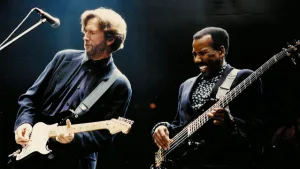 Could you explain to us why recording in the studio with Eric Clapton is like performing?
Could you explain to us why recording in the studio with Eric Clapton is like performing?
A lot of times in the studio, people were thinking and trying to get it right, but in a way, with Eric we go in and we just play. We have a good time and we don’t really think too much about trying to make it slick or perfect or anything, we just go try to make good music. So, that’s why it’s always a joy to go in the studio and there is really not the pressure that it has to be perfect. We just go in and have fun.
You toured with George Harrison (The Beatles guitarist) and Eric Clapton in Japan in 1991. Do you have happy memories from your collaboration with George?
Absolutely! He was one of the nicest, dearest friends. Every time I used to go to London, I’d give him a call and he’d send a car for me to come to the house and we just hung out and he played music and told fantastic Beatle stories. He was a genuinely beautiful human being. That last tour in Japan, we had a great time. I think he mentioned to Eric that he wanted to do it and Eric said: “Use the band” and then we got together and rehearsed. To play these songs just felt legendary to me and there was so much fun.
There is great photo of you and George probably at his home drinking tea.
(Laughs) Yes, I mean, he was such a down-to-earth wonderful man and I really miss him.
What is the secret of the amazing chemistry you have with Steve Gadd (Eric Clapton, Steely Dan -drums) as a rhythm section?
Well, it’s easy to have a chemistry with Steve Gadd because he is such a wonderful player and he makes life easy: Whenever we walk into the studio or on a stage it’s like we are not working, we are just -again- having fun and he is a fantastic musician that comes with so much experience that literally it makes you play better when you play with Steve. We have a fantastic time playing together.
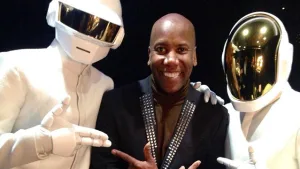 How did it happen to play on Daft Punk’s “Random Access Memory” (2013)?
How did it happen to play on Daft Punk’s “Random Access Memory” (2013)?
You know, I received the call from Daft Punk and they were in the mode where they wanted to try out real musicians and sort of go analog and go back to that Nile Rodgers and Chic groove. So, I was just very happy to get the call and then obviously we had so much fun making that record.
In your documentary you say a story about a Facebook photo. You said: “Guys, now I’ll post this photo on Facebook”.
(Laughs) Right, because sometimes it’s fun to just document in the studio, so, I was taking pictures and I was about to upload to Facebook, but they didn’t have their masks on and they said: “Oh no, no, no! Don’t do it, because nobody knows what we look like!” (laughs) So, it was one of those things where I said: “Ok, alright. I won’t upload it”.
Were you surprised with the commercial success of Daft Punk’s single “Get Lucky”?
I was blown away by the success of this song and at the time it was released, I was travelling all over the world, so, every street I’d ride down in Paris, Tokyo, Italy, I could hear the song coming out of an apartment or another car or a taxi. I couldn’t believe how much it just blew up all over the world, it was incredible.
Was it a bit surreal to play at the Obama Inaugural Celebration at the Lincoln Memorial in 2009?
Absolutely! It was one of the moments where you look out and first of all, you see probably two million people just like shoulder to shoulder for as far as the eye could see left or right and it was such an amazing historic day, the value of it, and I remember I put the picture of my parents and grandparents on my music stand, because they weren’t alive to see the first Black President. So, it was a very emotional day. Lots of people had come from miles around, it was very cold but people were bundled up throughout the National Mall in Washington, DC to see this historic occasion.
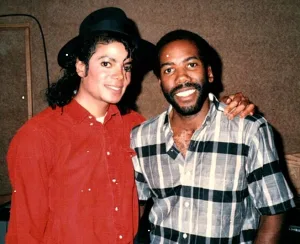 How much has your approach to bass changed over the years?
How much has your approach to bass changed over the years?
My approach has not really changed except that I just refined my concept about what a song needs and pay honor to the song and nothing else. Not trying to sign my name to it or anything, just but whatever the song, the project calls for. I think it’s the responsibility for everybody but especially a bass player to just really lay down the foundation and be that support for the song. So, that’s what I work on every day, every time I record I try to figure out what’s the exact, perfect special part to play for the song.
Could you please describe to us your session with Michael Jackson on “I Just Can’t Stop Loving You” from “Bad” (1987) album?
Oh, yes! That was one of the times that was very special to be in the studio: Quincy Jones (ed: producer) and there’s Michael, Bruce Swedien, the fantastic engineer and as you are playing in the song, even though it’s a ballad you realize that a billion people are gonna hear this (laughs). So, at the time, again, you wanna make every single note special and for me, the bass part, I just tried to make it warm and fuzzy and it was an exciting experience. Of course, when I was pulling up to the studio, a black Mercedes pulls up next to me, tinted windows, door opens and then Michael gets out of the car and he looks like he just stepped out of a video. He was amazing, leather jacket… It was fantastic, really exciting!
You were on the same bill with Stevie Ray Vaughan at Alpine Valley just before his death. Was Stevie’s passing a big shock for you?
Oh, it was shocking and it was one of the saddest days of my life. Knowing that we had just played together and I ‘m a private pilot, so I had given my seat up in the helicopter to go fly with one of my friends who is a pilot, so, Stevie jumped into the seat. We had four helicopters, we had two days there and but it was the last flight and it went down. So, it was a very-very sad and dark day.
Was it an intimidating experience to be in the studio with Barry White when you were 16 years old? I know his was carrying a Magnum with him.
(Laughs) He would jump out of his car twirling a 44 or 45 Magnum and it’s a big gun and then he put it down on the recording console and we’d just start doing a take and everybody was just scared to death to make a mistake (laugh). I think [it was because of] the neighborhood he was from, he felt he needed a little bit of protection.
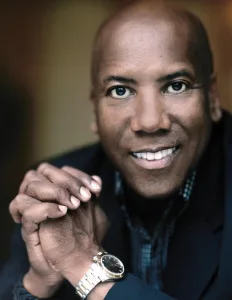 How much artistic freedom do you have on other people’s albums?
How much artistic freedom do you have on other people’s albums?
A lot of times there is a lot of artistic freedom, but I prefer if they have a demo or something and they really guide me or give me as much direction as they can, as to what they want, but one of the things that I feel good about having so much experience in the business, is trying to craft a bass part that’s perfect for the song.
You had a lasting collaboration and friendship with Quincy Jones, who recently passed away. Please tell us a few words about him.
Not only is he one of the most incredible arrangers and producers, but he was one of the most incredible human beings, like a mentor; always sharing wisdom and guidance, always had great quotes. He said: “God gave Man two ears and one mouth, so that you can listen more than you can speak”. One of his quotes that I finally realized was: “Live every day like it’s your last and one day you’ll be right”. So many quotes. He was such a sweet, kind, giving, loving human being and you just don’t see that kind of love, especially in the workplace. The entire music community and the entire world will cherish and miss him.
Ron Carter (Miles Davis Quintet -double bass) told me last year that the first take in the studio is always the best, because the first time you play the music, the second time you play yourself. Do you agree with this?
I agree 100%. Sometimes some producers feel it takes a few takes to get warmer, but I found out that some of the most magical ones were even before the first take, when you were warming up and getting sounds. One of my favorite engineers and friends, Moogie Canazio, he records before you even have the sounds and everything, he hits “record” and I can’t tell you how many times we used the take that was even before the first take. Because it’s just the magic and energy and you are not thinking so much, the song is just flowing out and first, that’s really a mark of a great engineer that can capture that. But, it’s very true that your first instincts before you are thinking too much about “Ok, should I play this register or that?” are better. It’s just flowing out and it’s free and I think it’s very important to capture those early moments.
Are there any future plans for Fourplay?
Always (laughs). We all are friends and we speak together all the time. Obviously, when Chuck Loeb (guitar) passed away and -now, oh man, it’s been seven years already, I think about him every single day- his shoes are very hard to fill, however we do plan to put the band back together at some point.
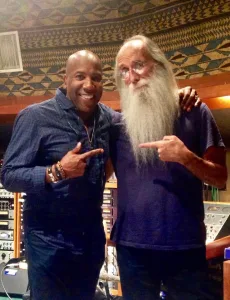 Why is there no competition among bass players? I mean, you, Tony Levin, Leland Sklar and Billy Sheehan you all love each other.
Why is there no competition among bass players? I mean, you, Tony Levin, Leland Sklar and Billy Sheehan you all love each other.
There is camaraderie among bass players and again our responsibility is to be the foundation and I think we are also the foundation of the relationships. Abraham Laboriel, Leland, Marcus Miller, Pino (ed: Palladino), these are all dear friends of mine and as a matter of fact whenever I see their name on a record, I buy it, so that I’d get a lesson (laughs).
Was it an interesting experience to play on Wayne Shorter’s (Miles Davis, Weather Report -saxophone) “Joy Ryder” (1988) album?
The most unique experience and one of the most challenging, because when he writes, he writes very rare notes and very rare intervals, so, it’s not like they just lay under your fingers so easily, so, there is a little bit of thinking, practicing and getting the combination of notes together. But I really enjoyed it and again he was also a dear friend and it was an honor to play on his record.
Would you like to share with us the story when Wayne Shorter and Herbie Hancock (Miles Davis -keyboards) called you late at night to replace their bass player?
(Laughs) Yes, one night they were at a club and their bass player had double-booked himself, it was a Friday night, I’ll never forget it. I was actually living in Burbank, California at the time and they were downtown Los Angeles. I didn’t have anything going on and it was very late night for me, I had gone to bed and the phone rang and they are on the other end saying: “We are downtown at this club and our bass player double-booked himself. Any chance that you can come down?” and you never saw somebody putting on their clothes faster. You know, I was just pulling up my pants running to the car (laughs), I grabbed my bass and we had a great time I think that was fun because after that we played together a lot, they called me for a lot of sessions and gigs.
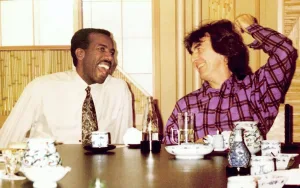 George Harrison’s music, Jimi Hendrix’s music, Santana’s music, had also a very strong spiritual aspect. Is today’s music spiritual?
George Harrison’s music, Jimi Hendrix’s music, Santana’s music, had also a very strong spiritual aspect. Is today’s music spiritual?
Yes, I believe all music is spiritual unless you just press the button on a computer and then it generates all music (laughs). Then, it’s not so spiritual, it’s more mechanical to me. To me, the spirit of the music comes when musicians literally open their heart and whatever comes through is like a dialog, like the language of God.
What it was like to play at Live Aid in Philadelphia with Kenny Loggins in 1985?
That was an amazing, exciting experience to look out at 250.000 people and to play this incredible venue (ed: John F. Kennedy Stadium in Philadelphia), for such a worthy cause, Live Aid. That was one of the first times also that I met Eric Clapton, we were playing and when I came off stage, he was at the side of the stage and he said: “This sounds great, do you wanna hang out?” It was really like a ground zero for those kinds of benefit concerts and a fairly exciting day.
Who are your influences as a bass player?
You know, I listen to everything. One of my very first influences to this day is Wes Montgomery, whose choices in notes on the guitar to me are always straight to the heart and the most beautiful. Pat Metheny (guitar), big influence. Of course, Ron Carter, in the early days. I’d listen to Rocco (ed: Prestia -bass) from Tower of Power, Jaco Pastorius of course, but then Buster Williams (ed: Herbie Hancock -double bass), Scott LaFaro, Charles Mingus, early days, I just love those people. Ray Brown, I would listen to him on all those Quincy albums. Then, Earth, Wind & Fire, Verdine White (bass), Peter Cetera (vocals, bass) from Chicago, Blood, Sweat & Tears, there were a lot of bands back in the day. Kool & the Gang, Robert “Kool” Bell was a great bass player. It was great because there were a lot of bands back in the day. Jack Bruce, I listened to Cream and learned “Sunshine of Your Love” (laughs), one of the first bass lines I learned and here I am playing it with Eric, half a century later.
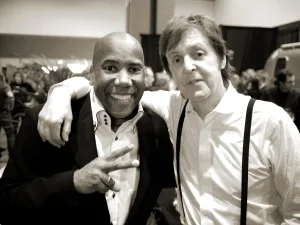 How did you feel the first time you met one of your heroes, Paul McCartney?
How did you feel the first time you met one of your heroes, Paul McCartney?
Oh man, we talked about influences, before I even picked up a bass, I had a broom, when The Beatles were on TV, I had a broom and I was pretending I was playing the bass looking at Paul McCartney’s. Again, another wonderful guy, I’ve met him a few times and he couldn’t be sweeter.
How much impact did The Beatles performance on The Ed Sullivan Show in February 1964 have on you as a kid?
Big impact. First of all, because there weren’t that many musical shows, that you could see some musicians playing, so, The Ed Sullivan Show was a legendary show that you watched every week. Of course, when The Beatles came on it was just like: “What was happening?!” and then everybody just completely fell in love with these guys, for obvious reasons, as well.
How important is improvisation to you?
Very important. We are improvising every time we play, creating whether it’s a part or a solo, but I think it’s very important. I was just listening to Wes Montgomery and Jimmy Smith (ed: Hammond organ player) last night and I was speaking with my son, we were listening together and I said: “I should learn both these solos. Let’s learn them” (laughs). Because then you just have an encyclopedia of beautiful combinations of notes, the way they put solos together. So, yeah, it’s very important.
How much different is the excitement between flying a plane and playing live?
You know what, both have a benefit that I love, but playing live, when you look out and see 50.000 smiling faces, there is nothing like it. The energy that you get from it, you can’t describe the feeling and that’s what I love the most.
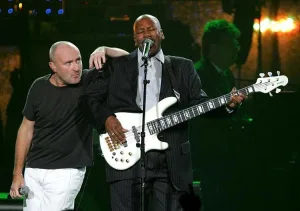 You ‘ve said in an interview that once you were in London and Phil Collins was driving and he was driving very fast. Would you like to tell us the story?
You ‘ve said in an interview that once you were in London and Phil Collins was driving and he was driving very fast. Would you like to tell us the story?
Well, yeah, that was when we were doing the Philip Bailey “Chinese Wall” (1984) album and we were staying out in Guilford, which is about an hour outside of London and Phil lived not too far, in Cranleigh, so, he would come by the hotel and pick Philip Bailey and me up and we jumped in his BMW and man, that thing was fast! I just remember thanking God every day for getting us to and from the studio so safely (laughs), because over here we don’t even have roads that you can drive that quickly on. But it was a nice little morning rush every time we were on the way to the studio.
Do you think because of the streaming services listening to an album from start to finish is becoming a kind of lost art?
I do. It’s funny and you should ask that, because I was just thinking about that. We are in the middle of the process of sequencing in our record now and sequencing used to be so important: What key a song would end in, the tempos and matching them together. From back in the day, we used to listen to albums from start to finish and I think that’s become a lost art and it’s a little sad to me because people are in shuffle mode and you don’t get to experience this as if it was like a concert. A lot of times artists put an album together but it’s almost like one tune leading into the next, as you suppose to. Here those songs go together. I think we miss that opportunity when we are just in shuffle mode.
Who is the person you have the best musical chemistry with onstage?
Oh my goodness! Right now, I think it’s turning into my son, Noah (laughs). That goes without saying. Now, I think it’s maybe 40+ years that I’ve been working with Eric Clapton and feel a very close chemistry with Eric onstage. After so many times, you can hear around corners where each other is going and there is a non-verbal communication, that’s very special when you are making music.
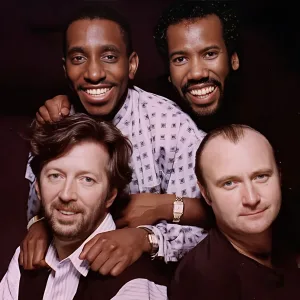 You have played many times with Greg Phillinganes (Toto, Michael Jackson -keyboards), you are like brothers.
You have played many times with Greg Phillinganes (Toto, Michael Jackson -keyboards), you are like brothers.
He is my brother, yeah. Again, if I were to think one of the musicians that I’m closest to and have the best chemistry with, Greg would be definitely one of those guys.
Did you have a lot of fun when he (Greg Phillinganes) was in Eric Clapton’s band with Phil Collins and you did a sort of choreography together?
Of course, we had some of the most fun ever on those tours and we spent most of the time laughing when travelling and there was a lot of love… and dancing (laughs). They used to call it “Earth, Wind & Eric”, but we had fun. That was one of my favorite quartets ever to play in, we called it “The Heaven Band”.
Tony Williams (drums) came from Boston and joined Miles Davis when he was 17 years old. Are there those kinds of opportunities nowadays?
There are opportunities all over the place, but when you think about that, when you think about how great he had to be to get that call by 17 years old, it’s amazing. I was just putting things together when I was 17. However, I was touring with Barry White when I was 16, so, to me, it says a lot about your preparation when you are young and really having the time to develop your art and your instrument. Those are important years for young musicians to try to really get it together, because the next thing you know if you start getting gigs you don’t have as much time to practice or develop it. When you think about people like George Benson, Pat Metheny, Jeff Porcaro (Toto, Steely Dan), my favorite drummer of all time, by the time they were 17, they were amazing (laughs).
Right now, I realized that you have played with Steve Winwood (Traffic, Blind Faith -vocals, keyboards, guitar) who wrote “Gimme Some Lovin’” (Spencer Davis Group) when he was 15.
It’s amazing! I think he wrote “I Can’t Find My Way Home” (Blind Faith) when he was 17 or 18, this is incredible to me. Get it done, when you are young.
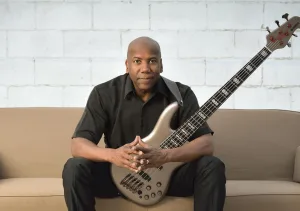 Is there any music documentary or autobiography by an artist that you enjoyed?
Is there any music documentary or autobiography by an artist that you enjoyed?
Oh man, there are a lot. First of all, Pat Metheny gave me one of his songbooks that’s amazing and that was really incredible. Richard Marx sent me his book (ed: “Stories to Tell – A Memoir” -2021), fantastic, I loved that. I should also mention “The Autobiography of Quincy Jones” (2001) is a must read. Again, filled with wisdom and a lot of good stories. I just saw the most amazing documentary on John Williams, it is called “Music By John Williams” (2024) and I can’t believe the amount of work that he did, his body of work, how good it is and how creative the man is. That’s an amazing documentary. Now, Netflix has so many great ones. There is one called “If You Are Not in the Obit, Have Breakfast” (2017) (laughs), one of those really good about some of our older generation. Yes, there is a lot of good material out there.
When I watched your documentary, I said: “I must talk with Tom Scott (Blues Brothers, Steely Dan, George Harrison, Michael Jackson -saxophone)”.
Hey, Tom! Tom is one of the finest musicians ever. I was aware of him back in the day when I was playing in clubs and learning all those great songs that he arranged by Steely Dan, “Black Cow” and “Aja”, and he had his own band and I played in bands that used to play some of Tom Scott’s material. One of the finest musicians ever on Earth and one of the nicest guys and dear friend. He arranged some songs for my record (ed: “Nathan East” -2014), “Moondance”, which Michael McDonald (Doobie Brothers) sang. He is amazing.
Hope to see you playing in Greece. You haven’t played in Greece.
We haven’t played there and I look forward to, some day. I really want to go. Hope to meet you in Greece.
A huge “THANK YOU” to Mr. Nathan East for his time. I should also thank Mrs. Debbie Johnson for her valuable help.
Official Nathan East website: https://nathaneast.com/
Official Nathan East Facebook page: https://www.facebook.com/NathanEast

